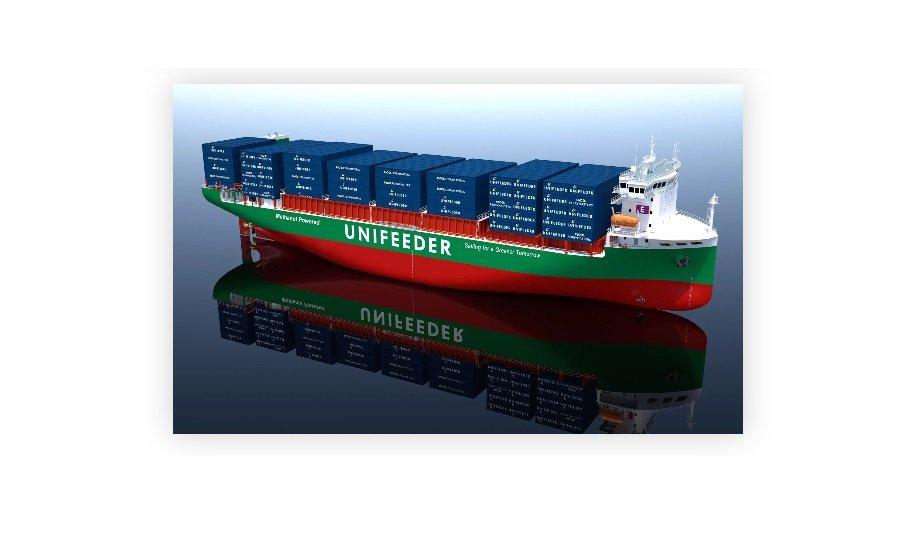Unifeeder Group has completed a long-term charter agreement for two additional methanol-capable container feeder vessels.
This follows the agreement for two initial vessels announced in October 2023, underscoring the group’s commitment to greener shipping solutions.
1250 twenty-foot TEU vessels
The latest agreement is in partnership with German-based ship-owning group Elbdeich Reederei and Norwegian shipowner MPC Container Ships (MPCC), who are responsible for one vessel each.
The 1250 twenty-foot equivalent unit (TEU) vessels, scheduled for delivery in 2026, will be deployed on Unifeeder’s European network. The addition of these new vessels reinforces the group’s ongoing efforts to reduce emissions across its network.
Fuel efficiency
Unifeeder collaborates with industry partners to address the challenge of renewable methanol supply
Simultaneously, Unifeeder is enhancing fuel efficiency throughout the fleet while increasing the utilisation of biofuels in its conventional vessels.
In alignment with its parent company, DP World, Unifeeder collaborates with industry partners to address the challenge of renewable methanol supply. This requires off-take commitments to establish production at the scale needed to replace conventional fossil fuels within the industry.
Methanol-powered vessels
Jesper Kristensen, Group CEO of Unifeeder Group, said, “Building upon our commitment to methanol-powered vessels last year, this marks another significant stride towards the green transformation of our fleet and operations."
"We anticipate the vessels to enter into operation in the next two years, advancing our steadfast commitment to sustainable solutions. We offer our customers alternatives that align with their sustainability journeys while making meaningful progress towards our own ambitious decarbonisation goals.”
Decarbonisation plan
Unifeeder has committed to a 25 percent reduction of emissions by 2030 and to reach net zero by 2050
The investment in the two new additional ships further supports Unifeeder Group’s ambitious decarbonisation plan. Surpassing the industry average, Unifeeder has committed to a 25 percent reduction of emissions by 2030 and to reach net zero by 2050 with no new fossil greenhouse gas emissions.
It aims to achieve this by emphasising fuel-efficient practices, regular maintenance and refitting processes of the existing fleet, and fostering a culture of learning and collaboration, sharing best practices across markets to drive effective carbon reduction strategies.
Reducing carbon footprint
Unifeeder Group is part of DP World Marine Services, which announced in December 2023 that it had reduced its carbon footprint by more than 16% in 2023 from its 2019 baseline of 2,118 ktCO2e by creating efficiencies across its operations.
DP World also joined the First Movers Coalition, setting a target for 5% of its marine power to come from zero-emissions fuels by 2030, marking its commitment to decarbonisation – a sentiment echoed by the Unifeeder Group.










